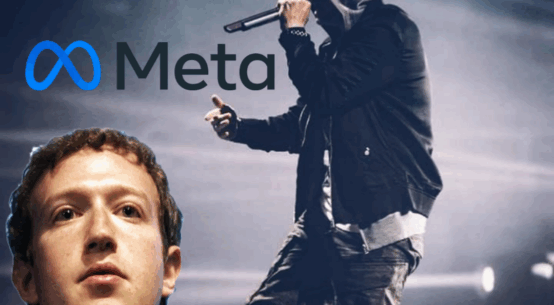In a lawsuit with potentially industry-defining consequences, Reddit has sued AI startup Anthropic, alleging that it unlawfully scraped and used Reddit’s user-generated content to train its large language models — including Claude.
Filed in California Superior Court on June 4, 2025, Reddit’s complaint accuses Anthropic of over 100,000 unauthorized data access instances, in violation of its Terms of Service, robots.txt protocol, and possibly California’s Computer Data Access and Fraud Act (CDAFA).
This legal clash is the latest in a series of lawsuits testing the limits of AI development, content licensing, and platform monetization. As generative AI companies depend on large volumes of online data, platforms like Reddit are now asserting stronger legal and commercial control over their datasets.
Background: What Reddit Alleges
According to the complaint, Anthropic repeatedly accessed Reddit’s content without a commercial license, despite Reddit’s terms and robots.txt file explicitly prohibiting unauthorized automated scraping. The lawsuit includes the following key allegations:
- Systematic scraping of Reddit’s data, including comments, posts, and user discussions, to train Anthropic’s Claude chatbot
- Circumvention of access restrictions, such as rate limits and bot detection tools
- Unfair commercial advantage, claiming that Anthropic used Reddit data while avoiding licensing costs paid by competitors (e.g., Google, OpenAI)
Reddit’s legal position is grounded in a mix of contract law, California statutory law, and unfair competition principles. It argues that Anthropic’s actions are not merely technical violations, but also a business threat to Reddit’s growing data licensing model — including recent deals with OpenAI and Google reportedly worth $60M–$80M annually.
Anthropic’s Response
Anthropic has stated publicly that it “disagrees with Reddit’s claims” and intends to “vigorously defend” itself. The company is expected to argue that:
- Reddit’s content is publicly accessible, and therefore fair game under web norms
- robots.txt is not legally binding, particularly under federal law
- The complaint may overreach into anti-competitive territory, particularly as Reddit begins monetizing access to its data
These arguments reflect the broader gray area in U.S. law around publicly available data and how it may be used by AI developers.
Legal Issues at the Core
1. Breach of Terms of Service
Reddit’s terms prohibit scraping or accessing its site via automated means without permission. If Anthropic used bots or proxies to evade detection, courts could treat this as a breach of contract.
2. Violation of CDAFA
California’s Computer Data Access and Fraud Act imposes penalties for unauthorized access to computer systems. Courts have interpreted it similarly to the federal CFAA, but Reddit may have a stronger case here if it can show circumvention of technical or contractual access barriers.
3. Intellectual Property Implications
Though Reddit doesn’t claim copyright over user posts (which are owned by the authors), it licenses content under its platform terms. Anthropic’s commercial use of that content without a license could constitute unauthorized use of a database, especially if the compilation or presentation is protected.
4. Unjust Enrichment & Unfair Competition
Reddit alleges that Anthropic gained an unfair commercial edge by exploiting Reddit’s data without paying, while competitors signed licensing deals. Courts will evaluate whether this rises to the level of unjust enrichment under California common law or a violation of the Unfair Competition Law (UCL).
Why This Lawsuit Matters
This isn’t just about Reddit or Anthropic. This lawsuit sits at the intersection of several key legal and economic issues in AI:
- Can public data be used for commercial AI training without a license?
- Are robots.txt files enforceable?
- Do platforms have the right to gatekeep data monetization?
- Can scraping of publicly visible data be restricted under modern tort or statutory theories?
The case has implications for every AI developer, data aggregator, and content-hosting platform. The outcome may either affirm the growing trend of data licensing as a commercial norm, or force courts to clarify whether web content posted for public view remains legally public for all uses.
Precedent and Comparisons
- LinkedIn v. hiQ Labs: The Ninth Circuit ruled that scraping public data may not violate the federal CFAA, but the case left room for platform-specific terms enforcement under contract law.
- New York Times v. OpenAI (expected) and Getty Images v. Stability AI: These cases involve copyrightable works, but Reddit’s focus is on contractual access — not content ownership per se.
- GitHub Copilot Litigation: Raises similar issues about AI training and content origin, especially with respect to licensing and fair use.
Reddit’s case is novel in that it focuses less on the content’s copyright status and more on the unauthorized method of collection and use, especially in a commercial AI context.
Industry Impact
For AI Companies:
- Expect greater legal scrutiny over training data origins
- Data sourcing practices must align with both technical and contractual restrictions
- Future AI model defensibility may depend on provable, licensed datasets
For Platforms and Content Hosts:
- Reddit is effectively asserting a “pay-to-train” licensing model, which could be emulated by others
- Terms of service and robots.txt files may become key defensive tools
- The case could strengthen platforms’ leverage in negotiating with AI firms
For Legal Practitioners:
- The case offers fertile ground for developing case law on digital trespass, unjust enrichment, and data scraping torts
- Precedent-setting rulings could reshape contract enforcement in tech-driven contexts
- The intersection of IP, privacy, and AI will continue to grow in complexity
Conclusion
Reddit v. Anthropic is more than a commercial licensing dispute — it’s a signal that platforms are prepared to litigate over control of the digital content economy. As generative AI accelerates, so too will the legal battles over who owns — and who can profit from — the data that fuels it. This lawsuit may help define the rules for a future where access to online content is no longer free, and permission is no longer implied.






